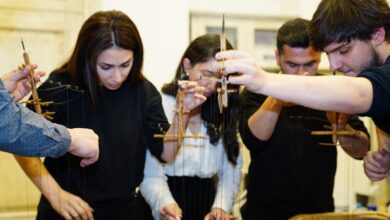The People Turning to AI for Dating and Relationship Advice

The People Turning to AI for Dating and Relationship Advice
Estimated reading time: 5 minutes
- AI offers anonymous, always-available, and often cost-effective relationship advice, addressing the complexities of modern dating and loneliness.
- Benefits include communication enhancement, profile optimization for dating apps, conflict de-escalation, and a space for emotional processing.
- Major pitfalls involve AI’s inherent lack of genuine empathy, the risk of algorithmic bias, and potential for stunted human social and emotional skill development.
- Over-reliance on AI can lead to superficial interactions, and sharing intimate details raises significant privacy and data security concerns.
- A balanced approach is crucial: use AI as a brainstorming tool, prioritize human connection and feedback, and actively cultivate your own emotional intelligence.
- Why Are Individuals Seeking AI Guidance for Their Love Lives?
- The Perceived Benefits of Leveraging AI in Relationships
- The Pitfalls and Ethical Dilemmas of AI-Driven Relationships
- Real-World Snapshot:
- Navigating AI’s Role in Your Love Life: Actionable Steps
- Conclusion: A Future of Blended Guidance?
In an age where artificial intelligence permeates nearly every aspect of our lives, from personalized shopping recommendations to complex medical diagnostics, it was perhaps inevitable that its influence would extend into the most intimate of human experiences: love and relationships. Once the exclusive domain of friends, family, therapists, and self-help books, relationship guidance is now increasingly being sought from algorithms and chatbots. This evolving landscape begs a critical question: is this a beneficial evolution or a concerning over-reliance?
The allure of AI as a relationship guru is multifaceted, drawing in individuals from all walks of life who are navigating the complexities of modern romance. From crafting the perfect dating app bio to deciphering confusing texts, or even seeking solace after a breakup, people are experimenting with AI as a digital confidante. As the trend accelerates, we find ourselves at a crucial juncture, pondering the implications of offloading our emotional dilemmas to non-human entities.
Why Are Individuals Seeking AI Guidance for Their Love Lives?
The reasons behind this growing reliance on AI for relationship advice are diverse and deeply rooted in contemporary societal shifts. For many, the digital realm offers a refuge from the perceived judgments or biases of human advisors. AI provides an anonymous, always-available ear, devoid of personal opinions or the emotional baggage that might come with confiding in friends or family.
Modern dating, especially through apps, can be an overwhelming and often disheartening experience. People report feeling lost in a sea of profiles, struggling to initiate meaningful conversations, or interpreting subtle cues. AI tools can offer structure and strategy, helping users analyze interactions, suggest opening lines, or even predict compatibility based on data.
Furthermore, accessibility plays a significant role. Professional relationship counseling can be expensive and may carry a social stigma for some. AI chatbots, often free or low-cost, provide instant access to advice at any time of day or night, making them an attractive alternative for those seeking immediate, convenient support.
The rising loneliness epidemic also contributes to this phenomenon. In an increasingly isolated world, AI can fill a void, providing a semblance of interaction and emotional support, even if it’s artificial. It can be a non-judgmental “listening” presence, offering comfort and a sense of being heard when human connections feel scarce.
The Perceived Benefits of Leveraging AI in Relationships
While skepticism is natural, there are several ways AI tools are genuinely perceived to assist individuals in their dating and relationship journeys. One primary benefit is in communication enhancement. AI can analyze conversation patterns, suggest ways to phrase sensitive topics, or help users articulate their feelings more clearly. For instance, if someone struggles with expressing vulnerability, AI can offer prompts or example sentences that ease them into difficult discussions.
Another area where AI shines is in profile optimization and messaging strategies for dating apps. AI can scan a user’s profile, offering suggestions to improve photos, bios, and prompts to attract desired matches. It can also generate tailored opening lines based on a match’s profile, aiming to spark more engaging conversations than generic greetings.
For those navigating conflicts, AI can act as a neutral third party, helping to de-escalate tensions by rephrasing aggressive messages into more constructive ones, or by providing different perspectives on a disagreement. This can be particularly useful in preventing miscommunications that often arise from emotional responses.
Beyond practical advice, AI can also offer a form of emotional processing and validation. Users can “talk” through their feelings, anxieties, or insecurities without fear of judgment. While not a substitute for human empathy, this process can help individuals gain clarity about their emotions before engaging with their partners or dates.
The Pitfalls and Ethical Dilemmas of AI-Driven Relationships
Despite its potential, the reliance on AI for relationship advice is fraught with significant pitfalls and ethical concerns. The most glaring issue is AI’s inherent lack of genuine empathy and emotional intelligence. Relationships thrive on authentic connection, nuance, and shared human experience – qualities that an algorithm, no matter how advanced, cannot truly replicate. AI can process data and provide logical solutions, but it cannot feel, understand unspoken cues, or experience the complex tapestry of human emotions.
There’s also a significant risk of algorithmic bias. AI models are trained on vast datasets, and if those datasets reflect societal biases in relationships, the advice given could inadvertently perpetuate harmful stereotypes or unhealthy relationship dynamics. For example, if the training data overrepresents certain communication styles as “effective,” it might overlook or devalue other equally valid approaches.
Furthermore, an over-reliance on AI can lead to stunted social and emotional skill development. If individuals consistently defer to an AI for what to say or how to act, they may miss opportunities to practice critical relationship skills like intuition, vulnerability, compromise, and authentic self-expression. This could ultimately hinder their ability to form deep, meaningful human connections organically.
“More people are turning to AI for help with their relationships, but is that a good idea?” This seed fact encapsulates the core tension. The convenience and accessibility are undeniable, but the potential erosion of genuine human interaction and the development of crucial emotional competencies present a serious dilemma.
Privacy is another major concern. Sharing intimate details about one’s relationships with an AI, which then processes and stores this data, raises serious questions about data security and confidentiality. Who owns this data? How is it used? What are the implications if this sensitive information is compromised?
Real-World Snapshot:
Consider the case of Alex, who used an AI tool to help draft a difficult conversation with his girlfriend about their future. The AI suggested a very logical, structured approach, focusing on objective points. While it prevented an immediate argument, Alex’s girlfriend later expressed feeling emotionally disconnected, sensing that the conversation lacked genuine warmth and felt ‘rehearsed’. This highlights how AI, in its pursuit of efficiency, can sometimes miss the essential human element that truly nurtures a relationship.
Navigating AI’s Role in Your Love Life: Actionable Steps
As AI continues to evolve, completely eschewing its potential benefits might be impractical. Instead, a balanced and mindful approach is key. Here are three actionable steps to consider:
- Use AI as a Brainstorming Tool, Not a Script Writer: Leverage AI to generate ideas, rephrase initial thoughts, or explore different perspectives on a situation. For example, ask it to suggest several ways to open a conversation or to frame a compliment. However, always personalize and adapt the output to reflect your authentic voice and feelings. Your words should sound like you, not a machine.
- Prioritize Human Connection and Feedback: Before acting on any significant AI advice, discuss your situation (and perhaps even the AI’s suggestions) with a trusted human confidant – a friend, family member, or professional therapist. They can offer invaluable human insights, empathy, and a reality check that an algorithm simply cannot. Remember, the goal of relationships is human connection, not algorithmic efficiency.
- Cultivate Your Emotional Intelligence and Intuition: Don’t let AI replace your own critical thinking and emotional processing. Regularly reflect on your feelings, your partner’s reactions, and the dynamics of your relationship. Practice active listening, empathy, and vulnerability. Use AI as a supplemental resource to enhance these skills, not to bypass their development. Your intuition and genuine emotional responses are irreplaceable in fostering deep connections.
Conclusion: A Future of Blended Guidance?
The integration of AI into our search for dating and relationship advice is a profound development, mirroring technology’s ever-expanding reach. It offers unprecedented accessibility, convenience, and a non-judgmental space for exploration. Yet, it also raises critical questions about authenticity, emotional development, and the very essence of human connection.
The future of love and relationships in an AI-assisted world likely won’t be one of outright replacement, but rather one of blending. AI can serve as a powerful tool to complement human interaction, offering initial insights and scaffolding for difficult conversations. However, the ultimate responsibility for nurturing genuine, empathetic, and resilient relationships will always rest with us, the humans who seek and give love. Our ability to connect, understand, and feel remains uniquely our own.
Frequently Asked Questions (FAQ)
- Q: Why are people increasingly turning to AI for relationship advice?
A: Individuals are seeking AI guidance due to its anonymity, 24/7 availability, low cost, and ability to navigate the complexities of modern dating. It also offers a non-judgmental “listening” presence in an increasingly isolated world.
- Q: What are the main benefits of using AI for dating and relationship guidance?
A: AI can enhance communication by suggesting phrasing, optimize dating profiles and messaging strategies, help de-escalate conflicts by rephrasing aggressive messages, and provide a space for emotional processing and validation without judgment.
- Q: What are the primary risks or pitfalls of relying on AI for relationship advice?
A: Key risks include AI’s lack of genuine empathy, potential algorithmic bias perpetuating unhealthy dynamics, stunted social and emotional skill development in users, and significant privacy concerns regarding sensitive personal data.
- Q: How can one use AI for relationship advice effectively without over-relying on it?
A: A balanced approach is crucial: use AI as a brainstorming tool for ideas rather than a script writer, prioritize human connection and feedback from trusted friends or therapists, and actively cultivate your own emotional intelligence and intuition.
What are your thoughts on using AI for relationship advice? Share your experiences and perspectives in the comments below! If you’re looking for professional, human-centered guidance, explore our resources on relationship counseling and communication workshops.





